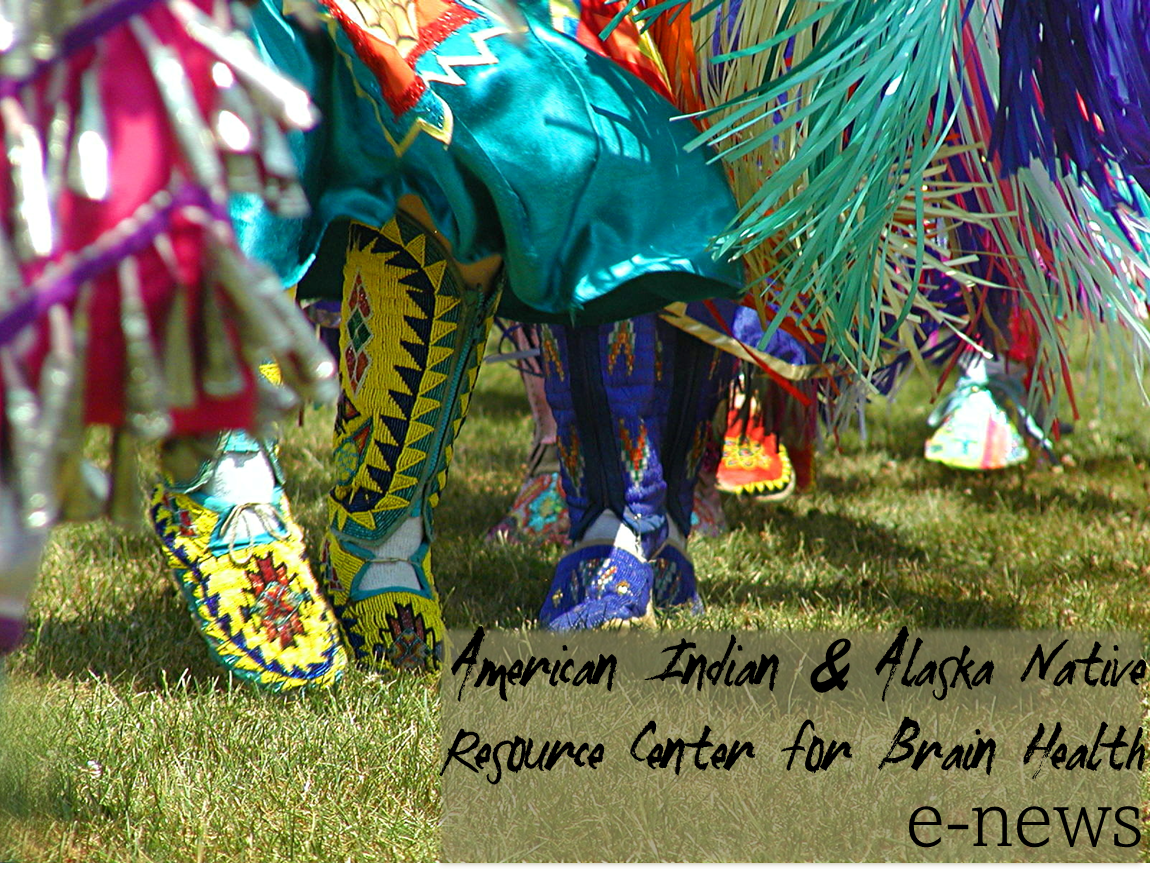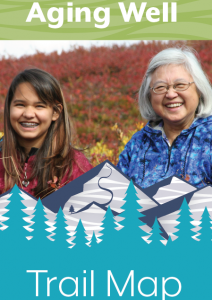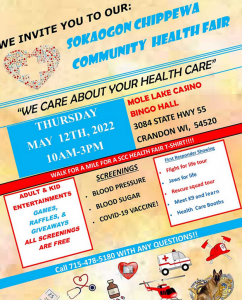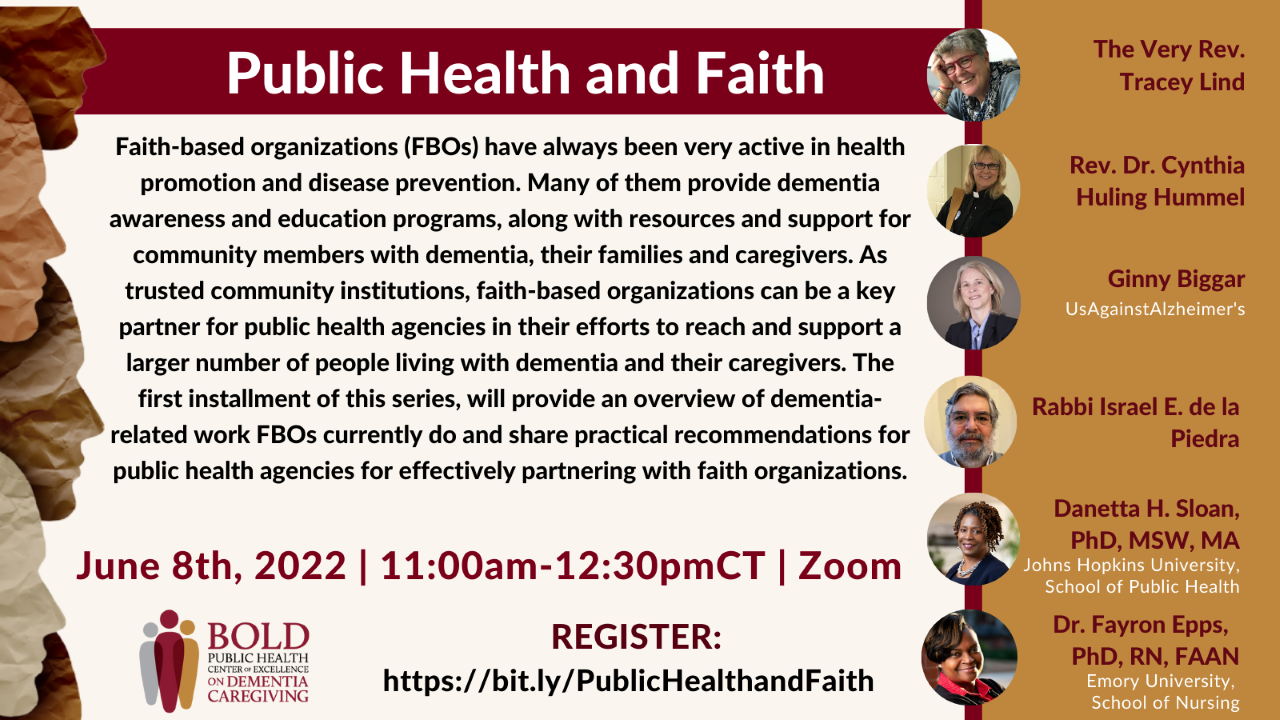Newsletter Navigation:
Clicking on each title with navigate to that section in the newsletter

The April Brain Health Resource Center In Action
 The IA2 Brain Health Team continues our busy days. Special highlights from this month include:
The IA2 Brain Health Team continues our busy days. Special highlights from this month include:- Continuing to virtually pilot Dementia Friends for American Indian and Alaska Native Communities information session! Click to sign up for our May 12 information session. Stay tuned for registration for our June Champions training.
- Our Executive Committee met and talked about ideas for future products and a path to tribal leader resource development and engagement.
- Presented “Healthy Heart, Healthy Brain: Tools for Dementia Prevention” webinar, now available on YouTube
- Offered several dementia and brain health presentations and posters at the ACL Title VI training and technical assistance conference.
- IA2 continues to offer an amazing and evolving Brain Health Resource Library for American Indian and Alaska Native communities.
- Be sure to check out:
- >>NEW: Engaging with Tribal Leaders and Communities on Dementia, Alzheimer’s and Brain Health
- >>NEW: 2022 Facts and Figures on Dementia, Mild Cognitive Impairment, and Early Diagnosis with Highlights for Native Communities
- >>NEW: American Indian and Alaska Native Community Health Communications Survey Results
- Be sure to check out:
- Follow our Facebook page for campaigns and resources, and please share within your circle to help us spread the word.
- Check us out on Twitter for future campaigns and social media messages we invite you to borrow and re-use.
IA2 continues to offer print-on-demand stipends of $250 for flyers and posters from the IA2, ASTHO, and National Council for Urban Indian Health (NCUIH) suite of materials developed with funding from the CDC.
Voices from the Community: Start with the present, then look to the past to shape the future of brain health
By: Talyah Sands, MPH, Director of Health Improvement, Association of State and Territorial Health Officials (ASTHO)
Current rates of dementia, the caregiving and support required to address it, and projections of what dementia could look like in the future are staggering. The challenge to improve equitable outcomes for dementia can feel overwhelming and frustrating at times. However, here you are, tuning into IA2’s communications, underscoring your commitment to improve brain health in our world. You know that we need to and can get ahead of growing rates and disproportionate impacts of dementia within communities. Like me, you have hope.
 To disrupt the current state of dementia, we must think through our past, present, and future. I am going to suggest that we start with the present. Once we have a more complete picture of what is going on right now, we can look to the past to understand how we got here and chart a path forward to a different, improved future. In public health, starting with the present means conducting a needs assessment. This involves gathering data and information about what is going on in a community with a particular health topic.
To disrupt the current state of dementia, we must think through our past, present, and future. I am going to suggest that we start with the present. Once we have a more complete picture of what is going on right now, we can look to the past to understand how we got here and chart a path forward to a different, improved future. In public health, starting with the present means conducting a needs assessment. This involves gathering data and information about what is going on in a community with a particular health topic.
Recently, colleagues and I at ASTHO and the Alzheimer’s Association released a toolkit to help health agencies and partners conduct needs assessments on dementia and caregiving. I would like to shout out my collaborators Kelsey Donnellan for leading the authorship of the toolkit with support from Liana Broaddus, John Shean for contributing on the author team and providing guidance, and Priya Shah for steering dissemination efforts. Many others contributed to the process—27 partners from local, state, federal, and national agencies informed and reviewed the toolkit. We deliberately included key players’ voices in the toolkit at every stage of its development.
The toolkit offers five steps for conducting an assessment:
1. Partner: establish partners and collaborators
2. Plan: create a plan to conduct the assessment
3. Collect: gather data and input
4. Analyze: synthesize the data and findings
5. Action: outline steps to take based on the data and communicate outwardly
The five steps are designed for people to go step-by-step or jump in at any stage if they already have started some activities. I encourage you to check out the toolkit and focus on pages 9-14 where you will find each step in the assessment process outlined in a one-page overview.
 We incorporated strategies to operationalize equity into each step. Strategies include actions like involving community members most impacted by dementia in the process, building shared ownership of the assessment with key players, and continuously bringing new perspectives to the table. We also included top questions to ask early and often to operationalize equity, adapted from equity leaders Human Impact Partners.
We incorporated strategies to operationalize equity into each step. Strategies include actions like involving community members most impacted by dementia in the process, building shared ownership of the assessment with key players, and continuously bringing new perspectives to the table. We also included top questions to ask early and often to operationalize equity, adapted from equity leaders Human Impact Partners.
To streamline the assessment process, we compiled 13 tools in the toolkit appendix. Some of the tools are also offered in an Excel spreadsheet for ease of use. One tool includes a list of potential data sources to kick-start ideas for planning an assessment (tool 3a, page 24).
The toolkit aligns with the Healthy Brain Initiative Road Map, co-developed by CDC and the Alzheimer’s Association. Our hope is that those who use the toolkit and conduct assessments will use the results to inform planning efforts, such as a health improvement plan or plan specific to addressing dementia and caregiving. These planning efforts are where past and future thinking can help to identify strategies and objectives that will help us move from status quo to improvement and equity.
As you assess the present state of dementia and caregiving in your own community, use that snapshot as a launchpad for reflecting on the past and future. Ask, “How did we get to this point? How can we intercept the current trend to move in a different direction?” By doing so, we can impact the future of dementia outcomes in our communities, starting with the present and looking to the past to transform our future.
Promising Practice: Forward Momentum for Road Map for Indian Country Tribal Mini-Grantees
By: Mike Splaine, Splaine Consulting; Mary Ann O’Meara, International Association for Indigenous Aging
The National Indian Health Board, with support from the Alzheimer’s Association, awarded five $15,000 brain health-focused mini-grants to tribal organizations to support work on the Road Map for Indian Country.
Grantees picked one of the eight public health strategies from the Road Map that best fit their community. Work started in the fall of 2021 and will wind up in July 2022.
The five organizations include:
- Aleut Community of St. Paul Island
- Cheyenne and Arapahoe Tribes Department of Health
- Kickapoo Tribal Health Center
- Mt. Sanford Tribal Consortium
- Sokaogon Chippewa Community
Recently the grantees held a meeting. They reported on two aspects of their projects—building new partnerships and progress on their road map action.
Not surprisingly, two of the grantees reported that COVID-19 restrictions have limited their progress. Tribes said they still had closed doors, and that was limiting tribal services and activities. Even so, the St. Paul Island, Alaska, community representative shared that a partnership with Southcentral Foundation had been positive.
Southcentral Foundation is an Alaska Native-owned, nonprofit health care organization serving nearly 65,000 Alaska Native and American Indian people living in Anchorage, Matanuska-Susitna Borough, and 55 rural villages in the Anchorage Service Unit.
Southcentral Foundation supplied them with some new and culturally appropriate materials on dementia and brain health. This saved them a lot of time versus having to create new bits.
Southcentral has more than 30 fact sheets for elders. Some resources of particular interest include:
- Trail map to wellness
- Memory loss and dementia
- Advanced dementia
- Spirituality and purpose
- Advanced care planning
See all of their fact sheets for elders by clicking here.
 In addition to COVID-19 shutdowns, staff and tribal leadership turnover have been an additional challenge. Sokaogon Chippewa has “doubled down” on having a significant brain health presence at an upcoming health fair in May.
In addition to COVID-19 shutdowns, staff and tribal leadership turnover have been an additional challenge. Sokaogon Chippewa has “doubled down” on having a significant brain health presence at an upcoming health fair in May.
The Cheyenne and Arapaho Tribes (Oklahoma) aligned their work with other incoming tribal health worker training. They will introduce the topic of dementia to new workers using content from the National Indian Health Board (NIHB).
Their planning work has stimulated some tribal members and leaders to ask more questions about Alzheimer’s and brain health. One outcome is that the tribe now recognizes that this is a bigger issue than previously believed.
The timing was fortunate, as a major health planning activity was underway. This allowed for the introduction of dementia and brain health issues–not just as healthcare issues but more generally about tribal health and well-being in the tribal plan. The hope is that this will lead to some resources and ongoing work after the mini-grant ends later this year.
Apply for ACL Alzheimer’s and Dementia ProgramCooperative Agreement grants
The Administration for Community Living (ACL) 2022 funding opportunity for the Alzheimer’s Disease Programs Initiative – Grants to States and Communities program it out. Cooperative agreement grants will support and promote the development and expansion of dementia-capable home and community-based service (HCBS) systems in states and communities.
- Program activities are expected to provide quality, person-centered services and supports that help individuals living with dementia and their caregiver remain independent and safe in their communities.
- There are two application options contained in the single funding opportunity announcement (HHS-2022-ACL-AOA-ADPI-0059): Grants to States (Option A) and Grants to Communities (Option B).
- No entity is eligible to apply for both state and community options.
DEADLINE: Eligible organizations are encouraged to apply for either a state or community grant by the May 24 deadline.
Dementia Friends for American Indian and Alaska Native Communities – May 12th Info Session
IA² is offering an opportunity to participate in a virtual pilot of Dementia Friends for American Indian and Alaska Native Communities. We have been continually working with American Indian and Alaska Native communities to develop and improve the Dementia Friends content to better meet the needs of our communities.
To learn more about the Dementia Friends Initiative, participate in a review of the materials, pilot the training content, or attend an upcoming session, please visit our Dementia Friends page by clicking here.
Healthy Aging Highlights: The Benefits of Exercise
View The Emotional Benefits of Exercise video below.
Internship Opportunity – Health Equity Taskforce
Bold Public Health Center of Excellence on Dementia Caregiving (PHCOE-DC) is seeking two research assistants to support its Health Equity Task Force (HETF). The assistant will be part of the HETF at the University of Minnesota. This is a paid 12-month, remote, temporary position, starting in June 2022!
|
Dying with a dementia diagnosis now more common, almost half of Medicare population
- The big increase is likely due to better public awareness, more detailed medical records, and Medicare billing practices than an actual increase in the disease.
- There was a notable increase in the number of people with dementia with diabetes and kidney failure.
- Fewer people die in a hospital an intensive care unit stay, but the use ventilators (breathing machines) increased slightly.
- More people with dementia are
- dying in the community (78.9%),
- receiving hospice care (62.7%), and
- fewer are dying with feeding tubes (3.7%).
- Authors note the importance of older adults talking with their families and health care providers in advance about the kind of care they want at the end of life if they do develop dementia, Alzheimer’s disease or another form of cognitive decline.
Featured Resources & News
Featured Resources & News
| Conference: | Taking a Stand Against Elder Abuse – 10th Annual Shoshone-Bannock Tribes Adult Protection Services | ||
| FamilyEducation: | Native Elder Caregiver Family Caregiving Online Training Module | ||
| Booklet: | |||
| Printing $: |
| ||
| Blog: | |||
| Resource: |
| ||
| Resource: | How to Guide: Audience Check-In for Cultural Adaptation of Materials | ||
| Resource: | |||
| Reports: | |||
 | Research: | ||
 | Research: | 2022 Facts and Figures on Dementia, Mild Cognitive Impairment, and Early Diagnosis with Highlights for Native Communities | |
| Webinar: | |||
| Webinar: | Dementia Friends for American Indiana and Alaska Native Communities Information Session May 12 |
Connect & share with other American Indian and Alaska Native communities.
Contact us to share Alzheimer’s disease, dementia, and brain health community news, resources, information, and promising practices happening in your community or others.
Brain health e-News for and by American Indian and Alaska Native communities.






 The
The 